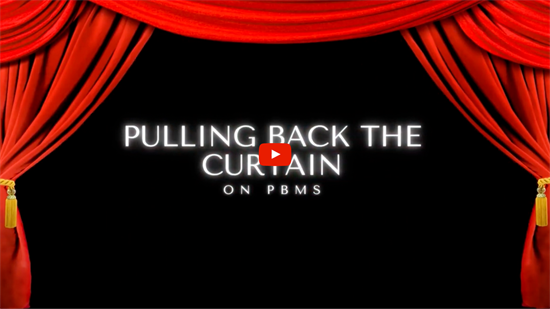WASHINGTON, D.C. - The curtain has been pulled back on Pharmacy Benefit Mangers’ (PBMs) harmful business practices, which leave patients scrambling to afford necessary treatments, cause independent pharmacies to shut their doors, and ignore medical professionals’ expertise. This results in burdensome delays, expensive medications, and poorer health outcomes for patients.
In case you missed it, Rep. Buddy Carter released a report on PBM abuses, complete with patient testimonials highlighting the ways these middlemen have negatively influenced their health. Here are the highlights:
Yuri: "How are we supposed to live with a decent quality of life when the very structures to help are set up to hurt us?"
Angela: "It's a person behind the computer making your life difficult, not your, or in my case my, paralyzed stomach."
Grace: "Traumatic, I think that doesn't really scratch the surface, truly, once you've lived through it, or watched a love one go through it."
Kate: "I have the least rare of the most rare diseases, and it took up until this past decade for those to be approved therapies."
Kami: "If there are medications out there that would help me get my independence back, then I should be able to have access to those."
Nisha: "I wouldn't say [PBMs] have helped me at all. In fact, I would say step therapy has been a hinderance."
Elisa: "Sometimes dealing with the admin side of sick is worse than the disease itself."
Watch the full video here.
Prescription drug pricing reform must rein in pharmacy benefit managers
By: Buddy Carter and Terry Wilcox
October 18, 2022
(Washington Times Opinion) - This month, President Biden signed an executive order directing federal health departments to create plans within 90 days to lower prescription drug costs that are burdening so many Americans. Any robust program to meaningfully bring financial relief to patients at the prescription counter must address the root cause of skyrocketing drug prices — pharmacy benefit managers (PBMs)...
PBMs are middlemen between pharmaceutical manufacturers, pharmacies and health insurers. They artificially spike prices, emboldened by a lack of transparency in the drug pricing chain, without providing any value to consumers. The biggest three PBMs, which account for almost 80% of the nation’s prescriptions, are owned by health insurers, creating a massive conflict of interest.
PBMs dramatically inflate drug prices by demanding huge rebates from manufacturers in return for placement on insurers’ lists of covered medications known as formularies. Since 2006, when PBMs took a more active role in the market, drug prices have increased by 313%. Annual rebates now exceed $200 billion, approaching half of the country’s prescription drug market.
In 2020, total gross expenditures for branded medications reached $517 billion. Manufacturers earned only 31% of this spending, while middlemen made 69%. One analysis concludes that $339 out of the $425 cost of a box of insulin pens is rebate dollars. PBMs and their pay-to-play rebate scheme explain why this 100-year-old medication remains unaffordable for so many.
By excluding low-rebate drugs from formularies, PBMs also routinely prevent patients from accessing their needed medications. The three largest PBMs block more than 1,150 treatments from formularies, including a low-cost insulin alternative called insulin glargine. Patients prescribed these drugs often must endure long waits, so-called step therapy (where insurers force patients to try and fail on formulary drugs first), and far higher expenses.
Read the full article here.
"PBMs are putting pharmacies out of business, particularly independent retail pharmacies.
"4% of all independent retail pharmacies are going out of business every year. That's going to create pharmaceutical deserts if you will.
"And when that happens, particularly in rural areas, then you're going to...be missing the most accessible health care professionals here in America.
"That's bad for health care."
Listen to Rep. Carter's full interview here.
###




